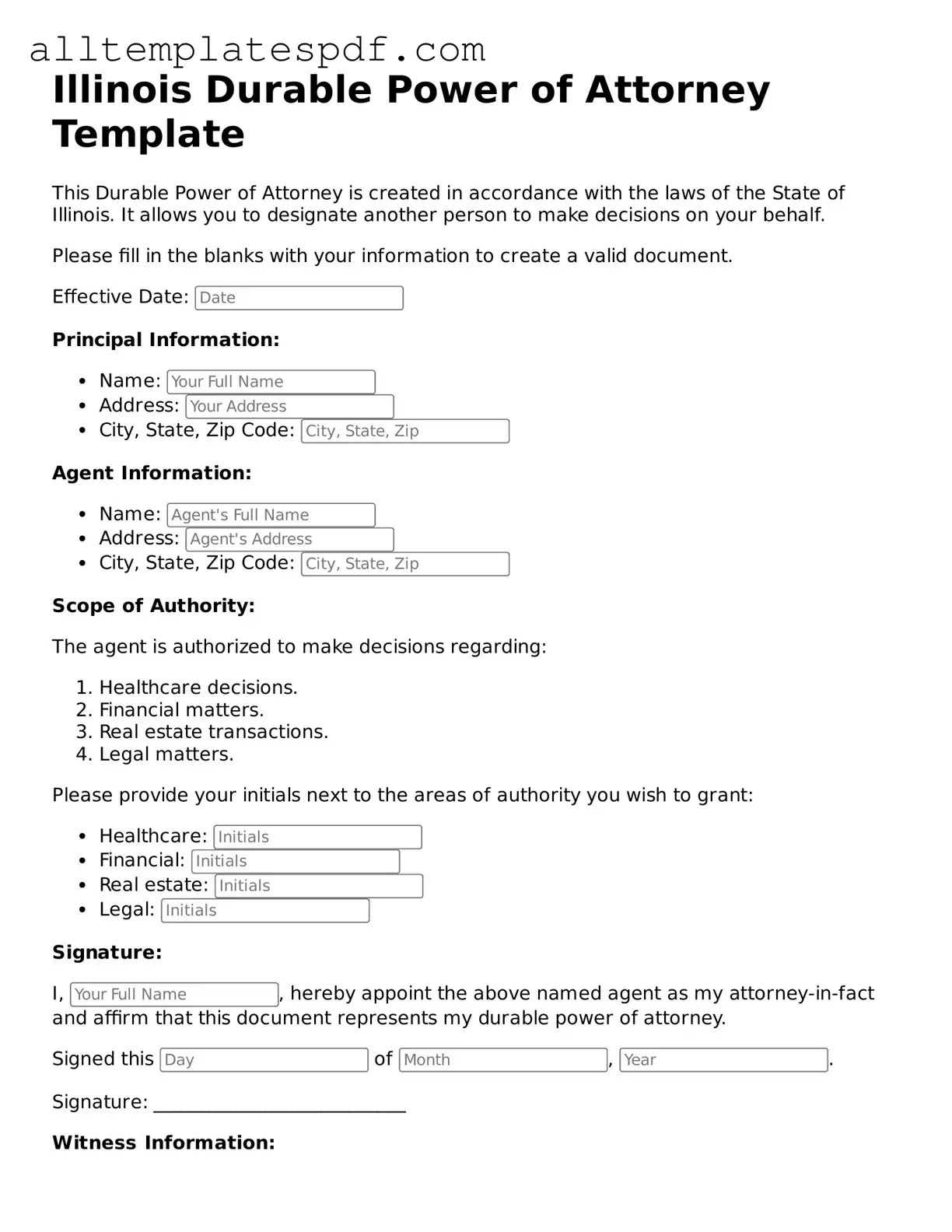Blank Durable Power of Attorney Template for the State of Illinois
The Illinois Durable Power of Attorney form is a legal document that allows an individual to designate someone else to make decisions on their behalf, particularly when they are unable to do so themselves. This form remains effective even if the person becomes incapacitated, ensuring that their wishes are respected. Understanding how to properly fill out this form is crucial for anyone looking to secure their future decision-making preferences.
Ready to take the next step? Fill out the form by clicking the button below.
Open Editor

Blank Durable Power of Attorney Template for the State of Illinois
Open Editor
Fast and easy form completion
Complete Durable Power of Attorney digitally — fast and easy.
Open Editor
or
↓ Durable Power of Attorney PDF Form
